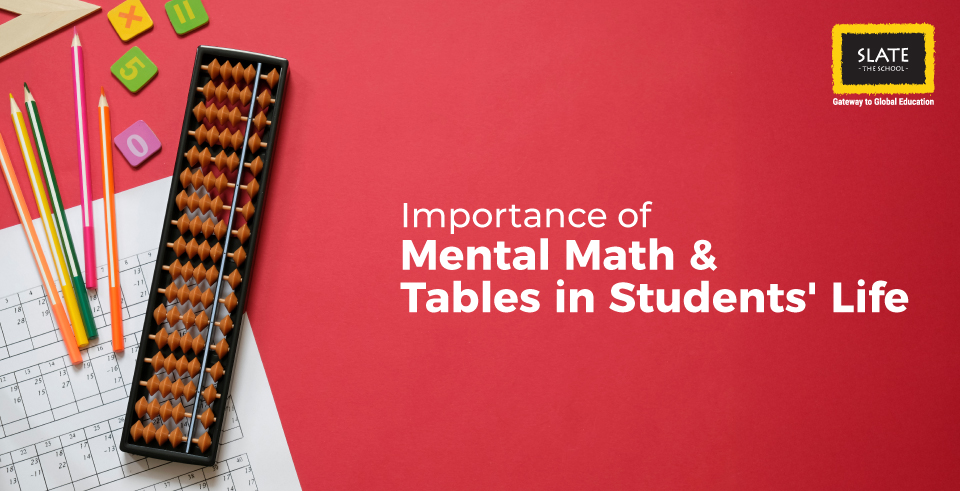Mathematics is an integral part of everyday life, and the ability to perform quick calculations mentally can be a game-changer for students. Mental math for students plays a crucial role in developing their cognitive abilities, enhancing problem-solving skills, and fostering a deep understanding of numbers. Similarly, the importance of multiplication tables for students cannot be overstated, as they serve as the foundation for advanced mathematical concepts.
The Importance of Mental Math Skills for Students
Mental math for students is more than just performing calculations without a calculator—it’s about sharpening the mind, improving logical thinking, and enhancing numerical fluency. By practicing mental calculations, students develop:
- Speed and Accuracy: Being able to quickly compute answers boosts confidence in examinations and real-world scenarios. Quick calculations help students perform better in time-constrained tests, allowing them to focus on solving complex problems rather than spending excessive time on basic arithmetic.
- Stronger Number Sense: Mental math improves understanding of numerical relationships, patterns, and arithmetic operations. Students who can visualize and manipulate numbers in their heads develop a more intuitive grasp of math concepts.
- Enhanced Problem-Solving Abilities: Quick thinking and logical reasoning help in tackling complex mathematical problems efficiently. Strong problem-solving skills also translate into other subjects, including science and economics.
- Flexibility and Adaptability: Mental math promotes the ability to approach problems from multiple perspectives. Students learn to apply different strategies to arrive at solutions, making them more adaptable learners.
- Improved Memory and Recall: Constant practice strengthens memory retention and recall abilities, benefiting overall academic performance. A well-trained memory enhances a student’s ability to retain formulas, equations, and even historical dates.
- Increased Confidence and Independence: Students who can rely on their mental math skills feel more self-assured in handling numerical problems without external help.
The Importance of Multiplication Tables for Students
Multiplication tables are the cornerstone of mathematical proficiency. A strong grasp of tables ensures that students can effortlessly handle multiplication, division, fractions, and algebraic equations. Here’s why mastering multiplication tables is essential:
- Builds a Strong Mathematical Foundation: Quick recall of multiplication tables simplifies more advanced math topics like algebra and geometry. Concepts such as ratios, proportions, and percentages are much easier when multiplication is mastered early.
- Reduces Cognitive Load: Memorizing tables frees up cognitive resources for solving complex problems instead of basic calculations. When students don’t have to pause and calculate simple multiplications, they can concentrate on higher-level problem-solving.
- Enhances Mental Arithmetic Skills: Students who know their tables can perform calculations faster and more efficiently. This is particularly useful in competitive exams and aptitude tests.
- Applies to Real-World Scenarios: From calculating bills at a restaurant to solving logical puzzles, multiplication tables have practical applications in daily life. Adults who have strong multiplication skills make better financial decisions and can handle budgeting more efficiently.
- Encourages Logical Thinking: Recognizing patterns in multiplication tables helps students develop logical reasoning skills, aiding them in subjects beyond math, such as computer programming and engineering.
Mental Ability Development at Slate
At Slate – The School, mental ability training is an integral part of our curriculum till Class IX. By focusing on essential skills, we help students build a strong foundation in:
- Adaptability: Students learn to adjust to different problem-solving scenarios, improving their ability to tackle new challenges. They become comfortable working with a variety of mathematical techniques and approaches.
- Problem-Solving Skills: By engaging in logical reasoning and numerical exercises, students enhance their analytical thinking. Real-world problem-solving requires students to approach challenges creatively and effectively.
- Critical Thinking: Encouraging students to evaluate problems and make decisions based on logical analysis. The ability to think critically is not just valuable in math but in all areas of life, from decision-making to leadership.
- Flexibility: Approaching problems from different perspectives and finding alternative solutions. Learning multiple methods to solve a problem improves a student’s ability to tackle unfamiliar mathematical situations.
- Resilience: Learning to embrace challenges and setbacks as part of the learning process. Students develop perseverance, which is a key trait in academic success and personal growth.
- Empathy and Emotional Intelligence: Understanding different viewpoints and responding appropriately. Math may seem purely logical, but emotional intelligence plays a role in how students approach problem-solving, work in teams, and support their peers.
- Innovation and Creativity: Encouraging students to think outside the box and develop unique solutions. Creativity in problem-solving is crucial for innovation, whether in technology, business, or science.
Assessments for Continuous Growth
Examinations serve as an essential tool to assess and refine student understanding. At Slate, we conduct Chapter End Tests (CET) from Class V onwards to evaluate student progress and provide targeted feedback.
CET Model Question Papers: A Step Towards Future Learning
With the rise of AI and instant information accessibility, the focus of education has shifted from rote memorization to conceptual understanding and application. Our assessment methods emphasize:
- Comprehending Concepts Across Subjects: Encouraging students to grasp the underlying principles instead of relying on memorization. Understanding core concepts helps students apply their knowledge across different areas.
- Nurturing Independent Thinking: Allowing students to derive answers based on their conceptual understanding. This practice fosters a growth mindset, encouraging students to explore multiple solutions.
- Embracing Mistakes as Learning Opportunities: Teaching students that errors are stepping stones to improvement. When students understand that making mistakes is part of learning, they become more willing to take risks and innovate.
- Preparing for the Age of AI: Emphasizing critical thinking, emotional intelligence, and creativity in an era driven by technological advancements. AI and automation demand that students develop skills that go beyond rote memorization, focusing instead on reasoning, analysis, and problem-solving.
The RRP Approach: Read, Revise, & Practice
To reinforce math learning, Slate implements the RRP (Read, Revise, Practice) strategy:
- Structured Problem Allocation: Ensuring a balanced distribution of practice exercises. Regular practice keeps mathematical skills sharp and prevents forgetting.
- Systematic Chapter-Wise and Exercise-Wise Assignments: Strengthening mathematical proficiency in a step-by-step manner. This structured approach ensures that students build their knowledge progressively.
- Enhancing Readiness and Willingness to Excel: Encouraging students to develop a consistent learning habit. Practice, when approached systematically, makes learning enjoyable and stress-free.
- Applying Knowledge to Real-Life Situations: Encouraging students to use math in everyday scenarios, such as budgeting, shopping, and time management, to make learning more meaningful.
Conclusion
By prioritizing mental math for students and emphasizing the importance of multiplication tables for students, Slate equips students with the foundational skills necessary for academic success and real-world problem-solving. These skills not only enhance mathematical proficiency but also foster a lifelong ability to think critically, adapt flexibly, and innovate creatively. By integrating structured learning approaches like CET assessments and the RRP method, we ensure that students develop a strong mathematical foundation, preparing them for future challenges in an evolving world. Math is not just about numbers; it is a way of thinking that shapes the way students interact with the world around them.

